By: Izumi Hasegawa February 7, 2024
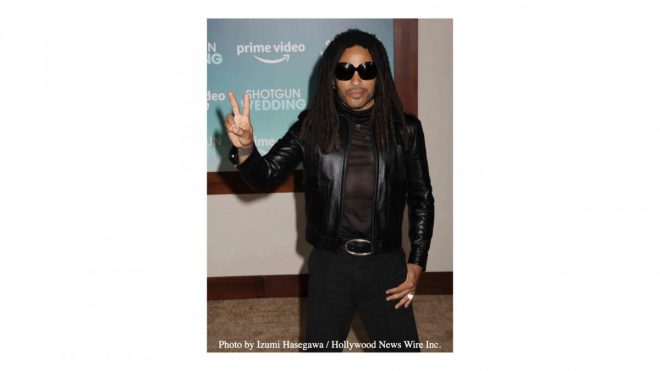
Music legend, Lenny Kravitz has many significant career accomplishments under his belt. Even though making the Rustin theme song was challenging for him, he learned about the civil rights activist through watching the historical film.
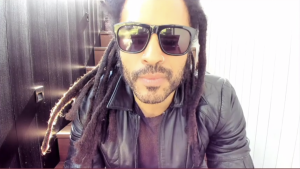
Q: How did you get involved with the Rustin Project?
LK: I got a phone call from one of the producers, Bruce Cohen. And he said that they had made this wonderful movie about Bayard Rustin. They sent me the film to watch.
And I watched it. And the first thing that touched me was how little I knew about Bayard Rustin. And that bothered me. But it lit the fire. It was like people needed to know. I grew up in a family that taught me so much about civil rights. My mother was one of those folks out there doing the work in the ’60s. And I didn’t know that much about Bayard Rustin. So after watching the film, I did more research. I then spoke with the director George Wolf, who I’ve known for many, many years and who I love and respect so much. And I was honored. And I felt that this was a real privilege. And something that I needed to represent in the best light possible. So I got quiet and I listened and I waited for what the creative spirit was going to bring and I sat down at the piano and just began with the first chord and ended up receiving Road to Freedom you know and it was a beautiful experience and it was also a wonderful collaboration even though I wrote the song I had so many conversations with George about it because it’s his film, it’s his story that he’s telling and so, therefore, everything I wrote had to fit for him you know the song comes in at the end of the film while the credits are going down, and this had to embellish what was just watched you know, and so the collaboration was really interesting.
He had very specific ideas about certain words or things that I would present. “No, no, no, that word’s not right, that word. I know what you’re saying, but it’s not saying it in the way that I feel it should be said.” Even down to sound, how much reverb there was on the voice, “I needed to feel a bit more intimate because what we just saw was this and that and this.” So it was really interesting to, ’cause I’m used to working alone. I play all the instruments, I write it, I produce it. And I don’t speak to anybody about it. So at first, it was interesting. You know, I was like, wow, wait a minute. But I learned so much by doing it. And it was, it was interesting a wonderful collaboration to help bring forth what George was trying to do, and not trying to do, did do, so I’m very happy with it. And then, you know, putting the gospel choir on and getting this whole vibe, it was beautiful.
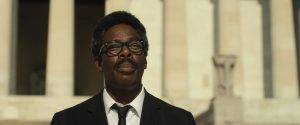
(C) Netflix
Q: What about that film stuck with you to help you start writing the lyrics and creating the music for the song?
LK: I mean, just the fact that somebody did so many things that were so monumental and did not get recognized by virtue of them being not acceptable at that time, you know. And there’s so many stories that we find out about now where people did X, Y and Z and did not receive, you know, what they should have, and it’s not about rewards, but people that did things that were so incredible. And of course, that event was something that was very important to Martin Luther King’s legacy, the March on Washington, and giving that beautiful speech that is forever etched in our hearts and minds.
But here was this person behind it. And so I wanted that story to be told. I wanted him to get his due. I wanted us to feel what this man had done. And I had a talk with Coleman (Colman Domingo, played Bayard Rustin) before I wrote it ’cause Coleman and I go back to The Butler (2013 film). We did The Butler together. He portrayed Bayard Rustin with such beauty and grace and emotion. And I said, “What do you have to tell me? ‘Cause you just made this movie. You’ve embodied this person.” And he said, “The one thing that keeps coming to my mind that I wanna say to you is ‘the work’.” And if you remember at the end of the movie, when everybody’s invited to the White House to go, he knew that his presence was going to bring up other things. And he said, “You all go. I’m gonna grab this bag and this pick and pick up garbage, ’cause it needs to be.” The humility. And all through the movie, he’s talking about the work. So there’s a lyric, you know, “so much work to be done, we’re on the road to freedom until the war is won. We’re on the road to freedom, there’s so much work to be done.” That was a very important line because we are continually walking on the road to freedom.
That’s what we’re here to do. And as far as we’ve come, there’s so much further to always go. So it’s about the work. It’s about the journey. It’s about continuing the process. So, yeah, those were important notes for me.
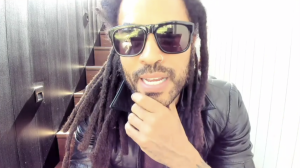
Q: You’ve done music for movies before. Was it a different process writing a song, not only for a movie, but for this historical event as well?
LK: Yeah I’ve done music for movies, I’ve had music in films, but I’ve never written something specifically as a theme for a movie, so that was exciting for me because I love film. I’m a cinephile I love movies, and that was, it was a beautiful thing to do and a challenge. You have to be really focused for that. You know, a lot of times when they use your music for films it’s a vibe, it’s not necessarily so specific. So as I said, this it was very specific. I ran each word, syllable, consonant, and vowel by George, who would say, “Okay, that’s great. I know what you’re saying, but work on that and get back to me.” I mean this went on for like three weeks. It really had to be specific, and simple, and to the point. So it was a challenge, but a wonderful challenge.
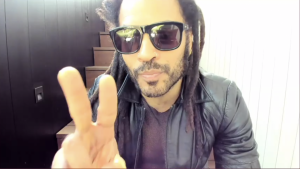
Q: What was your favorite moment in the movie?
LK: You know what? I mean, the whole journey did, but at the end, when you can choose between the recognition, or being confident enough in what you did and the reason you did it to step away and say, “I’m good, I did the work, that’s what it’s about.” That is magnificent. That is a great lesson for all of us. When you remove your ego like that, and you’re confident.
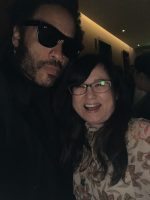
Rustin is now streaming on Netflix.
Edited by Seana Magee
